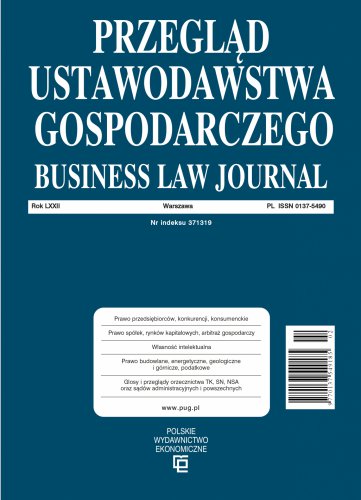In recent years, the domestic market for investment funds has been witnessing a trend towards consolidation of this market, which — although at first glance it seems to be a phenomenon characteristic only of private law — has its specific private and public law aspects. The most important element within this process is the PFSA's power to control the capital flows occurring within a given financial institution, i.e. a given investment fund company. The main idea of this regulation is to prevent a takeover of control over a given TFI and to prevent gaining significant influence over TFI management by shareholders who do not ensure correct functioning of the TFI and do not provide stability and security for its further activity. This mechanism is in fact composed of two parts. First, i.e. the notification mechanism, under which the PFSA has been provided with powers to object to an intention of direct or indirect acquisition or subscription for shares or rights attached to shares of the TFI, in a number ensuring reaching or exceeding, respectively, 10%, 20%, one-third, 50% of the total number of votes at the general meeting or participation in the share capital. Secondly — which will be analysed in this publication — the mechanism of the PFSA's decision regarding the prohibition on exercising voting rights from TFI shares or prohibition on exercising rights of the TFI parent entity. Taking into account the fact that this decision has effects both in the sphere of administrative and commercial law, and that it remains outside the mainstream of doctrinal interest, it is appropriate to characterise this decision, the procedure for its issuance, as well as the legal consequences of its entry into legal circulation, in a closer and detailed manner.
Keywords: supervision; Financial Supervision Authority; prohibition to exercise voting rights; investment fund manager; investment fund; corporate effects

